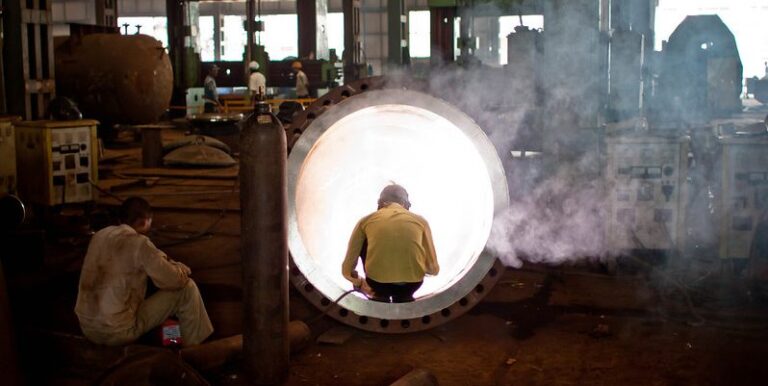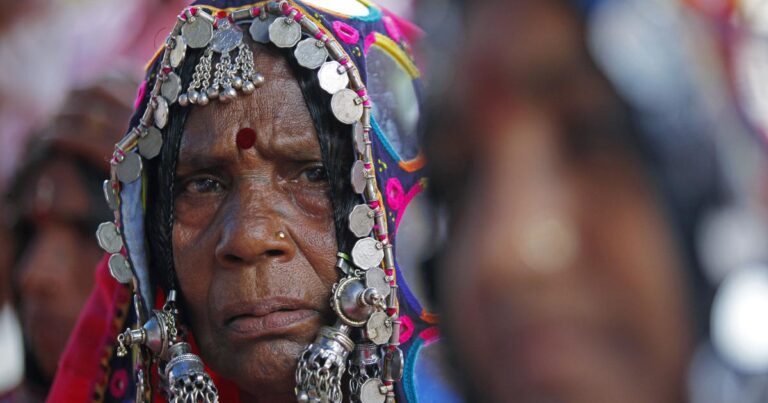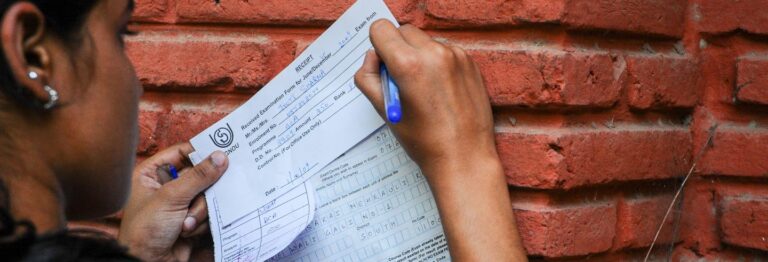The Contradictions of the ‘Urban’ in India
The informal working class makes the city, but the city has no place for its own makers.
India’s oldest Socialist Weekly!
Editor: Dr. G.G. Parikh | Associate Editor: Neeraj Jain | Managing Editor: Guddi

The informal working class makes the city, but the city has no place for its own makers.

Like the Roma and Sinti of Europe, Indian nomadic groups were also criminalised. After 75 years, the government must recognise their economic and social rights.

While pursuing its reactionary military-strategic rivalry with India, Pakistan’s ruling elite relies upon the military as the bulwark of the capitalist state machine that upholds its privileges and ruthlessly suppresses the democratic, social and economic aspirations of the people.

Giant retailers in the developed economies make huge fortunes in concert with smaller-scale textile and garment factories, the bulk of them in Asia and other parts of the global South. While this has brought luxury for a privileged few, it has plunged millions into a vast matrix of exploitation.

Fossil fuel stakeholders have been seeking new revenue in the petrochemical industry in general, and plastics in particular.

The great Afghan woman martyr, Meena (1956-1987) founded the Revolutionary Association of the Women of Afghanistan (RAWA) in 1977. We reproduce here a part of Meena’s poem which she wrote few months before her martyrdom.

Seventeen years after Indians won the Right to Information, the backlog of pending RTI appeals continues to grow in the face of understaffed and defunct information commissions, and attacks on RTI activists are becoming more brutal.

Higher education in India no longer guarantees decent work in a changing and shrinking job market, even as its investment in liberal values is being challenged. Given the policy reforms and technological upheavals also underway, our universities face an uncertain future under an uncaring state.

Women still face casual sexism, feel reluctant to report sexual harassment at the workplace and find it difficult to succeed within companies because of gender bias.

The 22 vows of Babasaheb can free the newly ordained Buddhists from the anti-human beliefs of Hinduism and bind them to the human beliefs of Buddhism. These vows are not anti-Hindu in any way but give guidelines for the followers of Buddhism which each religion gives.
Janata Weekly is India’s oldest independent socialist weekly.
Ever since its founding in 1946, Janata has voiced its principled dissent against all conduct and practice that is detrimental to the cherished values of nationalism, democracy, secularism and socialism, while upholding the integrity and the ethical norms of healthy journalism. For more than seventy years now, week after week, it has continued to analyse the changes taking place in the country and the world from a socialist standpoint, and thus promote the spread of socialist ideology in the country.
Address: D-15, Ganesh Prasad, Naushir Bharucha Marg, Mumbai- 400007.
Help us increase our readership.
If you are enjoying reading Janata Weekly,
DO FORWARD THE WEEKLY MAIL to your mailing list and
invite people to subscribe for FREE!